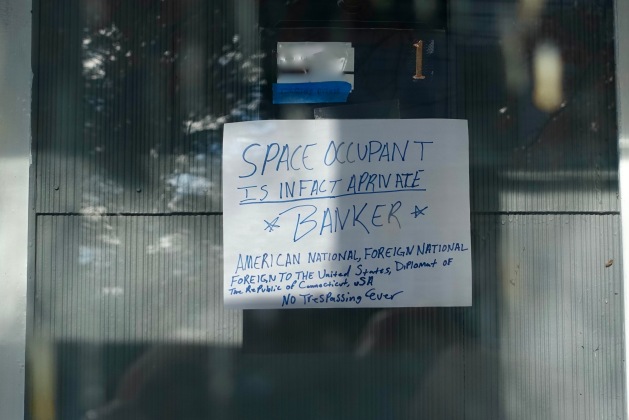
Tom Breen of the New Haven Independent covers real-estate transactions the old-fashioned way. Photos (cc) 2021 by Dan Kennedy.
At least two New England newspaper publishers have begun using artificial intelligence rather than carbon-based life forms to report on real-estate transactions.
The Republican of Springfield, online as MassLive, and Hearst Connecticut Media, comprising the New Haven Register and seven other daily newspapers, are running stories put together by an outfit called United Robots. MassLive’s stories are behind a hard paywall, but here’s a taste from the Register of what such articles look like.
United Robots, a Swedish company, touts itself as offering “news automation at massive scale using AI and data science.”
Last year I wrote about artificial intelligence and journalism for GBH News. I’m skeptical, but it depends on how you use it. In some ways AI has made our lives easier by, for instance, enhancing online search and powering the inexpensive transcription of audio interviews. But using it to write stories? Not good. As I wrote last year:
Such a system has been in use at The Washington Post for several years to produce reports about high school football. Input a box score and out comes a story that looks more or less like an actual person wrote it. Some news organizations are doing the same with financial data. It sounds innocuous enough given that much of this work would probably go undone if it couldn’t be automated. But let’s curb our enthusiasm.
Using AI to produce stories about real-estate transactions may seem fairly harmless. But let me give you an example of why it’s anything but.
In November, I accompanied Tom Breen, the managing editor of the New Haven Independent, as he knocked on the doors of houses that had been foreclosed on recently. The Independent is a digital nonprofit news site.

A note Breen left behind asking the resident to call him. (Phone number removed.)
Breen has spent a considerable amount of time and effort in housing court and poring through online real-estate transactions. From doing that, he could see patterns that had emerged. Like Boston and many other cities, New Haven has experienced an explosion in real-estate prices, and a lot of owners are flipping their properties to cash in. In too many cases there are victims — low-income renters whose new landlords, often absentee, jack up the rents. Breen takes the data he’s gathered and rides his bike into the neighborhoods, knocking on doors and talking with residents. It’s difficult, occasionally dangerous work. Once he was attacked by a pit bull.
We didn’t have much luck on our excursion. No one was home at either of the two houses we visited, so Breen left notes behind asking the residents to call him.
“If investors are swapping properties at $100,000, $200,000 above the appraised value and tens of thousands of dollars above what they bought it for two days prior,” Breen told me, “all that can do is drive up costs that are passed down to the renters — to the people actually living in the building.”
The result of Breen’s enterprise has been a series of stories like this one. The lead:
Tenants of a three-family “lemon” of a house on Liberty Street are wondering how two landlords managed to walk away with $180,000 by double-selling a property that they say remains a dump.
You’re not going to get that kind of reporting from artificial intelligence.
Now, of course, you might argue — and some have, as I noted in my GBH News piece — that AI saves journalists from drudge work, freeing them up to do exactly the kind of enterprise reporting that Breen does. But story ideas often arise from immersion in boring data and sitting through lengthy proceedings; outsource the data collection to a robot, and it’s likely that will be the end of it.

Bad sign: Here’s how Breen and I were greeted at one foreclosed-upon property. (Names removed.)
At the corporate chains that own so many of our newspapers, there’s little doubt that AI will be used as just another opportunity to cut. Hearst and Advance, the national chain that owns The Republican, are not the worst or most greedy newspapers chains by any means. But both of them have engaged in more than their share of cost-cutting over the years.
And it’s spreading. United Robots’ U.S. clients include the McClatchy newspaper chain and The Atlanta Journal-Constitution, part of the Cox chain. No doubt the Big Two — Gannett and the groups owned by Alden Global Capital — won’t be far behind.
 Dempsey also said on Twitter/X: “This is probably the first time in my career that a police department did not release any information about a homicide. Not even where it happened, or when.” According to her story:
Dempsey also said on Twitter/X: “This is probably the first time in my career that a police department did not release any information about a homicide. Not even where it happened, or when.” According to her story:









